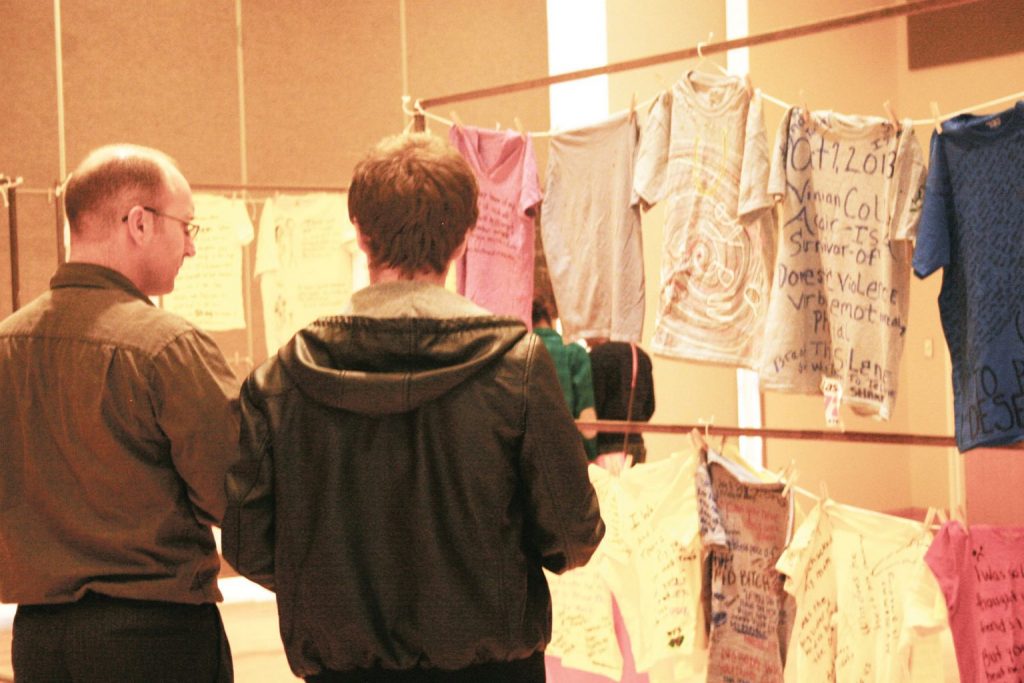Clothesline Project displayed at USU Eastern

This archived article was written by: Josie Sue Slade
Every semester at USU Eastern, the Clothesline Project is hosted in the Jennifer Leavitt Student Center. The Clothesline Project is a visual display that bears witness to the violence against women. Students and staff at USUE have decorated shirts to represent abuse, both physical and mental, they or someone they know have suffered.
The Clothesline Project is a national project that first began in Massachusetts in 1990. The first project had 31 shirts. Now it has spread across the nation and brought many people to action.
Cyndi Nielsen, a staff member at USUE, and Darrin Brandt, USU Eastern’s director of student services, worked hard to break the silence and bring awareness to abuse. They first brought the clothesline project to USUE three years ago and have had a display every semester since. They now have over 70 shirts designed here.
Brandt said, “The Clothesline Project gives victims a chance to tell their story. It shows them that they can overcome their abuse and encourages victims to seek out the help they need. The idea is to break the silence. Violence that is overlooked just continues until it escalates.”
Seven colors represent different types of abuse and violence against women. Grey for verbal abuse, white for women who have died as a result of violence, yellow for survivors of domestic violence, red/pink for survivors of rape, blue for survivors of incest, purple for survivors of violence as a result of sexual orientation and black for survivors of violence as a result of disability.
Nielsen said, “We want to let people know that abuse isn’t just happening to them. They aren’t alone.”
Students and staff who have suffered from violence are encouraged to visit the display and decorate a shirt.
The display is a powerful commentary into the violence we can often overlook. As you stand inside the room there are various sounds that signify different types of abuse. Every 10 seconds a woman reports assault, every two minutes a woman reports a sexual assault and every six hours a woman is killed by an intimate partner.
Harold J. Ward, a social work intern, started a campaign promoting a presentation of abuse and violence. If students take the pledge, “I promise never to commit, condone or remain silent about violence towards women,” they are given a white ribbon to pin to their clothes.
The white ribbon campaign urges people to speak out about violence. Ward said, “Seeing someone abusing a woman and doing nothing is just as bad as committing the crime. A lot of the time the problem is silence. We need to step up and do something.”




